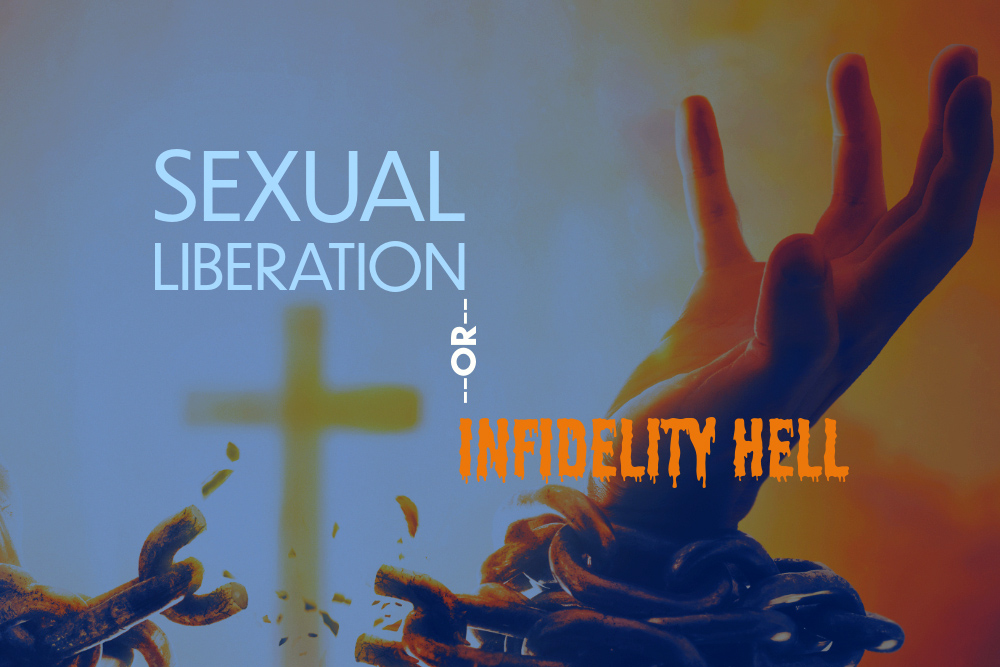
“You have no right to judge me.” Or so I’ve been told.
Truth is, they’re right. As a sinner saved by grace I am in no position to cast any stones of condemnation. The rationale as to WHY I shouldn’t be judging, however, is where the debate comes in.
Yesterday’s reasoning for abstaining from judgment was because I too was a sinner and therefore didn’t have the right to suggest I’m better. We’ll call this the moral hypocrisy argument. Again, I don’t disagree. But that’s not today’s rationale. Today, in the 21st century, the logic we’re generally fed for why it’s inappropriate to make moral judgments about others is because everyone is responsible for forming their own truth. At least that’s the current cultural assumption. Do what you want to do, be true to yourself, just don’t hurt anyone along the way. This is the moral relativism argument.
This is something of a hollowed out Golden Rule and is fairly clever. It sounds nice and is probably the best case you can make for morality apart from God. But, with just a little thought, the average person can recognize that moral relativism doesn’t work.
If everything is permissible so long as you’re not hurting anyone, who gets to say for sure whether or not someone is being hurt?
Take something as commonplace today as pornography usage.
We now have 20 years of research on the effects of internet pornography, a generation of people largely educated by the public to believe that porn was a legitimate “safe sex” alternative to engaging in more risky sexual behavior. It wasn’t just a victimless crime. It was touted as a “healthy” alternative.
Today, we know that approximately 80% of young adult men, 70% of middle-aged men, and 50% of older adult men admit to accessing pornography on some sort of regular basis (Pornography usage numbers, by the way, are often considered by experts to be notoriously underreported, i.e. it could be higher.). Couple this regularity with the tidal wave of research that says pornography consumption leads to a vastly heightened prevalence of sexual addiction, sexual dysfunction, more graphic, illegal, and abusive sexual practices, the devaluation of monogamy and child rearing, and quite predictably, the likelihood of an affair.
In 2002, the American Academy of Matrimonial Lawyers reported the following as the most salient factors present in divorce cases:
- 68% of the divorces involved one party meeting a new lover over the Internet.
- 56% involved one party having “an obsessive interest in pornographic websites.
From a practical perspective, pornography can, and often does, lead to divorce and therefore to victims: the other partner in the relationship, children, extended family who have to pick up the pieces. But even if a legal divorce isn’t the end result of porn use, there are still victims. For married people, porn use can create images and ideas in the mind of the user which he or she brings into the bedroom with their spouse…like inviting a third person into their relationship.
For single people, porn can lead to unrealistic expectations of the opposite sex. And then there are the actors and actresses in the films, many of whom are coerced or forced to act in pornography, and even if they do so willingly, are far more likely to deal with psychological and physical problems as a result of their work, such as depression, sexual violence, suicidality, and poverty…at a rate that is nearly 3x the rate of people who do not act in pornography (according to a 2011 study of women published in the Psychiatric Services journal)!
The cultural command is…everything is permissible so long as you’re not hurting anyone. Again, I ask, who gets to say for sure whether or not someone is being hurt? It certainly seems like millions are hurting because of the relative morality dictum.
So, I’m suggesting we reconsider.
Relative morality does not work. Darwinian amorality, where everyone does whatever they see fit, even if it does involve willfully hurting others, would end civilization. The third option, the only option left, is universal morality. And the absolute truth that teaches universal morality can only be found outside of us, in divine revelation. It would make sense for us to once again revisit such an option at a time like this.
Since universal truth is, by definition, timeless, it is unchanging. This is why Jesus, thousands of years after Creation, can reaffirm God’s design for human sexuality:
“Haven’t you read,” he replied, “that at the beginning the Creator ‘made them male and female,’ and said, ‘For this reason a man will leave his father and mother and be united to his wife, and the two will become one flesh’? So they are no longer two, but one flesh. Therefore what God has joined together, let no one separate.” Matt. 19:4-6
Moving back to that paradigm WOULD CAUSE LESS HURT. No more pornography. No more hookups. No more cohabitation. No more infidelity. I guarantee we’d be happier, healthier, and more satisfied. We’d hurt less.
But renewed effort, redirected goals, and godly guidelines won’t atone for our mistakes. For that we also need divine intervention.
So, for all who have been hurt by the slavery packaged as “sexual liberation,” the Bible also has a wealth of comfort.
Amazingly, God himself also knows exactly what it’s like to be hurt by sexual unfaithfulness. He knows what it’s like to be a victim of another person’s sexual misconduct. God even specifically had his prophet Hosea take a cheating wife, Gomer, to illustrate to his people that he knew what it was like to be devastated by (spiritual) philandering.
When the Lord began to speak through Hosea, the Lord said to him, “Go, marry a promiscuous woman and have children with her, for like an adulterous wife this land is guilty of unfaithfulness to the Lord.” Hosea 1:2
We have a God who has been cheated on. And he has all the power in the universe at his disposal to heal us of our wounds and free us from our slavery. He also has enough love to pay the price to separate our sins of unfaithfulness from us, as far as the east is from the west (Psalm 103:12).
Now he guides us to a more beautiful design for human sexuality.
What would it look like if we all really believed that?

